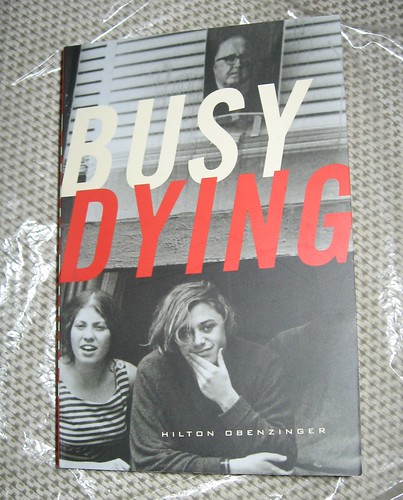Election Day 2008 (2)
Wednesday, November 5th, 2008Andrew, our local Sierra Club Chapter director, sent out an email several days ago headed “All Hands on Deck,” urging members to attend the County Board of Supervisors meeting scheduled for Election Day.
It was considering a proposal for a vast and ill-planned subdivision on the Santa Margarita Ranch, the last intact old Spanish Rancho in California, a splendid tract of land just a few miles out of town. The proposal, which required a 1200 page Environmental Impact Report including the revelation of 10 class one unmitigable negative impacts, had been presented before the Planning Commission a month ago, drawing spirited opposition from neighbors and environmentalists among others.
The Chair of the Commission had pulled a procedural ploy to force a vote after only a couple of hours of hearing, requiring the rest of the Commissioners to either approve or reject the application before considering the Environmental Impact Report in detail. The majority rejected the plan, but either way, the developer won, since the project could immediately be appealed to the Supervisors.
The current Board majority was recently voted out of office because of their outrageous bias in favor of developers, but still could approve this project in the month before their terms ended and the new, more environmentally friendly board was seated.
The item was placed at the end of the agenda, close to the time that the Board would have to adjourn to allow for the ballots to be counted in the County Building. Jan dropped me off there around 3:00, on the way to setting up her Election Night party at Linnea’s. I sat in the Chambers and wrote down what I wanted to say. It turned out that the County Staff’s rebuttal of the Developer’s appeal was so lengthy that the meeting was adjourned before public comment even started, and the hearing was continued until November 18. But at that point my remarks will have lost their timeliness, so I’m recording them here:
It’s an ironic coincidence that the Board of Supervisors is considering this proposal after many years of controversy on a day that marks the end of an era in our country.
It’s an era that’s been repudiated by most candidates for public office up for election, including both candidates for President.
The era that’s ending is one of private gain over public interest, an era of mortgaging the future assets of our children and grandchildren for the present benefit of the wealthy and well-connected few.
It’s an era of ignoring the consequences of untrammeled economic growth for our immediate environment and our global climate system.
Thankfully that era is coming to conclusion.
The strategy of the appeal in front of you is to get the present Board to act today to overrule the determinations of its own Planning Commission and staff in favor of land developers before the newly elected Board is seated in two months.
This strategy is a desperate effort to avoid the kind of change that the nation, the state and the county are now eager for. This strategy is an effort to allow the loosening hand of the past to retighten its grip on the future.
I ask the Board to reject this backward-looking appeal. Doing so will allow time for the developers to create a new proposal that will not create ten class-one negative environmental impacts nor require an appeal of staff and Planning Commission findings.




